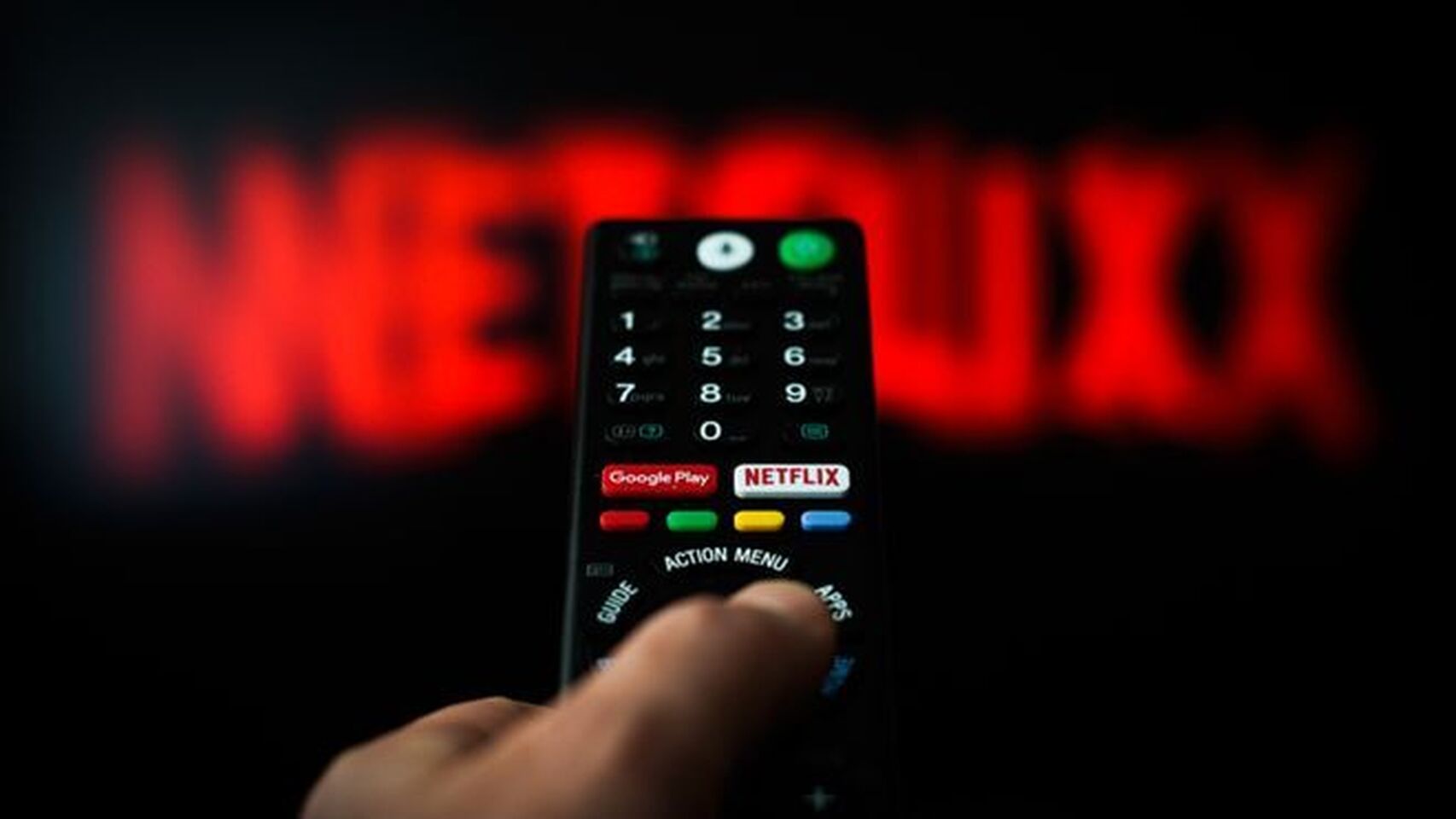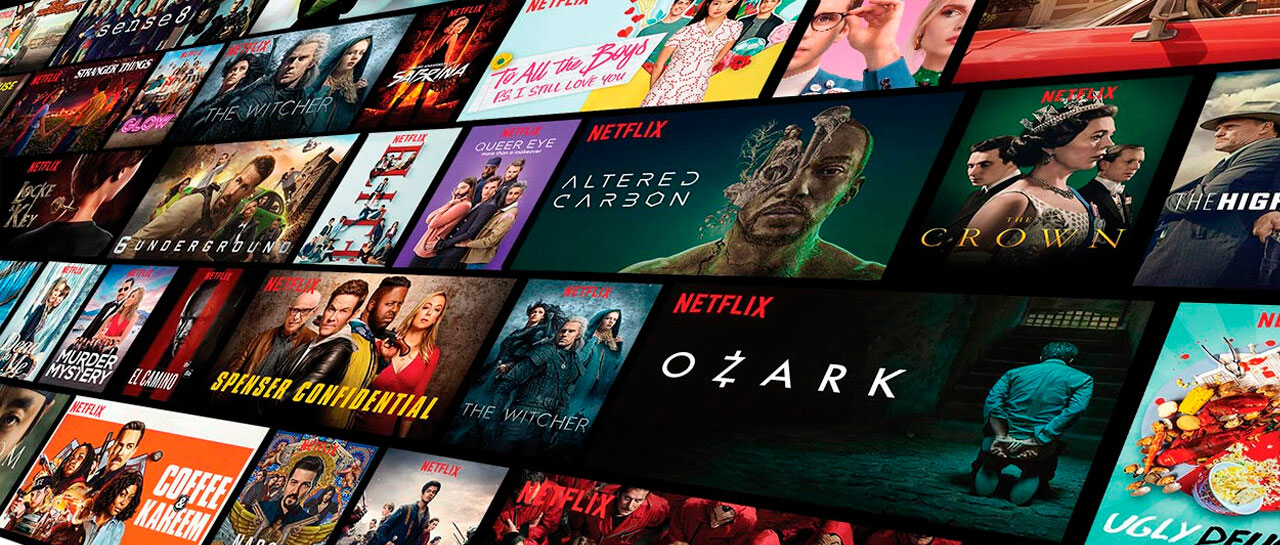Netflix: Subscriptions everywhere
- Netflix sells streaming services over the Internet. It offers a large catalog of series and films to millions of subscribers spread around the world, exceeding in summer 2019 the 150 million spears. How has this growth been achieved? What does this business model have behind it?

In the United States today, you can access almost any service through subscription systems: someone can walk your dog or cook for you, rent furniture or any other negligible activity you can imagine. With Smartphone and enough money, you won't need to get out of the couch. Old traditional product sales companies have also started using subscription systems, such as Adobe software companies or The Atlantic information magazines.
Why such a change? Where was the problem of the normal production and sales process?
The answer, short and quick, is money: In 2018, Disney premiered the successful movie Black Panther and won $287.5 million in the United States. This is an internationally recognized film, one of Disney's biggest premieres that year, but despite that, production cost 200 million dollars.
A few years earlier, Netflix had released House of Cards, a $100 million project. Teleserie brought nearly 4 million new subscribers that same fiscal quarter. At $10 a month for each of the new subscribers, Netflix only earned $500 million more in the first year of life.
Of course, things are more complex. At that time, Netflix also produced series that didn't succeed, didn't hold many of the subscribers they got for a long time, etc. But Disney is also subject to similar variables. The main difference is that most people only saw Black Panther once, while Netflix only loses about 5% of subscribers a year, as most still keep the subscription payment one year later. It earns hundreds of millions of dollars from these retained subscriptions, which seems to be the money that has been made for nothing.
There are also
problems with subscription systems. In short, subscribers cannot be lost: If I sign up to watch a single show on Netflix and I leave after I watch it, I'll charge you the money, because you're not going to get back the investment of the product. If the company offers bad products, the cost of getting new subscribers will be high, but maintaining good service for a long time is as difficult as it is expensive.
New companies that want to follow the model usually do not feel an important nuance: The essence of the business of companies like Netflix and Adobe is not only in the use of the subscription service, but also in the ease of not losing subscribers. In their areas they have created a monopoly, or a similar hegemony, and that's key. Although many new companies have recently emerged with the aim of competing, so far Netflix has been the only platform on which it has had a wide range of audiovisual content (by law). If someone closes the account, where are you going?
What's more, society believes that watching Netflix products is a cultural necessity, people are pushing their neighbors to watch TV shows. Also, Adobe products are the only practical option for everyone who works in advertising or design, or at least most people feel it. Sharing and editing files with the rest of the professionals is essential to be able to work in these areas, and for this it is necessary to have Adobe software. In addition, Adobe has purchased those few products that wanted to take the contestants out and canceled them. Using this monopoly, it has doubled the value of the company since it started with the subscription system.
If it is developed properly, subscription systems can facilitate the growth of the company, but for people to join, the market must be monopolized or close to it. If you don't get it, it's over. Few subscribed companies are closing down to run out of investors’ money, but as a competition, hundreds of companies are running to see who is going to sink faster.
Let's take an example
of that. Blue Apron is a subscription company that became famous for a short period of time in the United States. Each week a box is distributed at home with a prescription and the ingredients needed to prepare it. In January 2017, just before the first public offer of sale was made, the company cost $2 billion. Despite being one of the pioneers in this business, dozens of companies were soon created that offered the same service. After leaving Stock Exchange, Blue Apron had to teach accounting books to investors and soon realized that the company was not economically viable: they were spending 150 dollars for each client, but they were receiving only 150 dollars from them. The company considered that subscribers could retain them for years, but the majority lasted only about six months. Many customers enjoyed a free trial period and then moved to another service. Now, the value of Blue Apron stands at 100 million dollars, with a downward trend.
Today, Wall
Street generously distributes money to anyone willing to receive it. Many companies are surviving because of this money without having a real business plan. Later, when it is clear that these companies do not have a viable plan, they disappear and they are all lost. They leave behind the deteriorated sector, in a “disruption” situation. But, namely, one of those companies could be the next Netflix, and that's why investors keep hope.
At best, these companies are going to figure out how to get more benefit from the client by working less. Netflix is one of the highest-paid companies in San Francisco, the most unequal city in the United States. In it, the wealthiest 1% earn 44 times more than the average salary of the remaining 99%. The Gini coefficient of San Francisco, which measures the income difference, is 0.503, while that of Álava, Bizkaia and Gipuzkoa is 0.253, the second best data in the EU.
These types of companies also have an impact on the social environment, especially if their business strategy is based on being the intermediary of major cultural expressions such as Netflix. Fe de etarras, for example, had a controversial advertising campaign in Hego Euskal Herria, a curious decision being the second Netflix movie in the Spanish state. His strategy was to become part of the cultural debate through controversy. But that plan can have dangerous consequences in the present right-winged political climate. An example of the situation that this may entail is the response to the premiere of the Mechanism series in Brazil.
One of the most important Basque start-ups is in a little-heard business, which wants to turn clothing buying into an internet subscription service. New clothing is distributed in boxes every few weeks. For its easy expansion in Europe, in September 2019, international venture capital investors gave it EUR 17 million. We will have to wait to see whether that company is not going to disappear – and before that help destroy local businesses – or whether it is going to succeed and, therefore, turn this region, one of the most egalitarian in Europe, into another San Francisco.
Reporting translated into Basque by Diego Pallés Lapuente
Martxotik Frantziako Netflix plataforman euskarazko audio eta azpitituluetako filmak ikusgai dira.
Euskaraz azpititulatutako edo bikoiztutako 70 ikusentzunezko eskainiko ditu 2022 urte bukaerarako plataforma estatubatuarrak. Eusko Jaurlaritzako Kultura eta Hizkuntz Politika sailak hainbat bilera egin ditu Netflixekin, baina plataformaren hitzetan, berak finantzatuko du ekimen... [+]
Gertatuko zitzaizuen: leku guztietan sekulakoa balitz bezala iragarri duten pelikula edo telesaila ikusi ondoren, frustrazio pixka batekin, “ez zen hainbesterako” esaten bukatu duzue. Eta azkenaldian inoiz baino gehiagotan gertatzen zaizue. Lasai, ez zaudete seko... [+]
Netflix, Amazon, Disney Plus eta Apple TV Plusek akordio luze bat sinatu zuten ostegunean Frantziako ikus-entzunezko agintaritzarekin (CSA), euren urteko diru-sarreren %20 Frantziako edukietan inbertitzeko. CSAk espero du inbertsioa 250 milioi € eta 300 milioi... [+]
Ikusi duzue goitik dosi txikietan erortzen ari den likido hori? Ah, euria: kasik ahaztu nuen zer zen. Plater bereziki fuerterik gabeko Sail Ofizialeko astelehen honi primeran datozkio zarra-zarra hiriari ukitu gris metalizatua ematen dioten tanta horiek. Umeletan idatzitako... [+]























